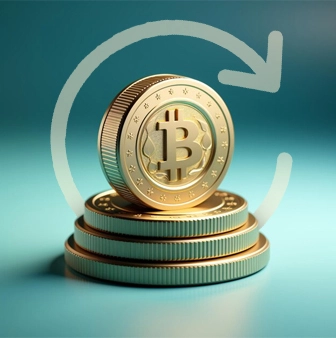
Easy money often comes at a heavy price – protect yourself from financial ruin.


A Ponzi scheme is a scam that tricks investors by promising very high returns. However, instead of earning profits from real investments, the returns come from new investors’ money.
As more people invest, the scam looks profitable. But when new investors stop joining, the scheme collapses, and the original investors lose their money.
A Ponzi scheme is named after Charles Ponzi. It’s a scam that promises high returns with little risk.
In this scam, the organizer attracts investors by promising good returns. They might claim to invest in securities, hedge funds, mutual funds, or postage stamps. Instead of using profits from real investments, they pay returns using new investors’ money.
Ponzi schemes can take various forms, like mail fraud, wire fraud, real estate fraud, commodities fraud, lottery fraud, and securities fraud. Agencies like the SEC, FBI, and state governments investigate these scams. Penalties include jail time, fines, and restitution. Running such a scheme can lead to charges for other financial crimes.
In 2019, authorities discovered many Ponzi schemes, the highest number since the Great Recession. Sixty such schemes were found, affecting $3.25 billion in investor funds. In December 2022, the DOJ charged the founders of two cryptocurrency Ponzi schemes, IcomTech and Forcount, in separate cases.
Charles Ponzi wasn’t the last to run a Ponzi scheme. In 2008, Bernard Madoff was convicted of running a Ponzi scheme by faking trade reports to show profits. Madoff’s scheme used historical data to create false records of trading profits.
During the 2008 financial crisis, investors withdrew funds from Madoff’s firm, revealing its insolvency. Madoff admitted his firm owed $50 billion to 4,800 clients. He received a 150-year prison sentence and forfeited $170 billion in assets.
Madoff’s scheme likely began in the early 1980s and lasted over 30 years.
Both Ponzi and pyramid schemes rely on attracting new investors with promises of large profits.
In a Ponzi scheme, new investors’ money pays off earlier investors, with fake transaction records to show profits.
A pyramid scheme offers a business opportunity requiring an initial investment. Participants earn commissions for recruiting new members. The earliest participants profit the most. As recruits decrease, the scheme collapses.
Ponzi and investment frauds are prosecuted as securities or commodities frauds, among other charges. Types of Ponzi schemes include:

This common federal crime involves any telecommunication, such as phone calls, faxes, texts, radio, TV, internet, social media, emails, and cable communication. Convicted individuals may face long imprisonment and restitution. However, compensation is often limited

It involves two elements: a scheme to defraud and the mailing of an item to execute the scheme. Mailing money, contracts, or fraudulent communications can meet the definition. Those who mail such items or knowingly participate in the scheme can be charged. Mail fraud often occurs in white-collar crime cases, such as financial or Ponzi frauds, credit card fraud, or insurance fraud.

Also known as financial advisor fraud, an alleged investment scheme carried out by a licensed financial advisor. It refers to the illegal practice of influencing financial decisions from investors based on false information.

Money laundering is the process of disguising the proceeds of illegal activity, often involving organized crime, terrorist activities, and drug transactions. Money laundering charges are secondary to a primary crime, known as a “predicate offense,” which is how the dirty money was acquired.
Individuals found guilty of this type of fraud may face lengthy imprisonment and be required to pay restitution to their victims. However, due to the nature of the crime, there is often little money available for compensation.

This common federal crime involves any telecommunication, such as phone calls, faxes, texts, radio, TV, internet, social media, emails, and cable communication. Convicted individuals may face long imprisonment and restitution. However, compensation is often limited

Mail Fraud It involves two elements: a scheme to defraud and the mailing of an item to execute the scheme. Mailing money, contracts, or fraudulent communications can meet the definition. Those who mail such items or knowingly participate in the scheme can be charged. Mail fraud often occurs in white-collar crime cases, such as financial or Ponzi frauds, credit card fraud, or insurance fraud.

Investment Advisory Fraud Also known as financial advisor fraud, an alleged investment scheme carried out by a licensed financial advisor. It refers to the illegal practice of influencing financial decisions from investors based on false information.

Money laundering is the process of disguising the proceeds of illegal activity, often involving organized crime, terrorist activities, and drug transactions. Money laundering charges are secondary to a primary crime, known as a “predicate offense,” which is how the dirty money was acquired.
Unusually High Returns with Low or No Risk High returns with no risk usually indicate a scam.
Abnormally Consistent Returns Stable, high returns despite market changes are suspicious.
Unregistered Investments SEC registration ensures transparency in an investment’s finances and management.
Unlicensed Sellers Avoid investments from unlicensed sellers.
Rogue Brokers Check brokers’ registration and disciplinary history using FINRA’s Broker Check database.
Secretive and Complex Strategies Lack of transparency should be a red flag.
Paperwork Errors or Inconsistencies This may indicate fraudulent activity.
Problems with Payments Ponzi schemes limit payouts, causing delayed or missed payments. Be wary of funds that discourage cashing out.
Although Ponzi and pyramid schemes both promise high returns for financial investment, they are not the same. The key difference lies in the unsuspecting victims’ role in each scheme.
In a Ponzi scheme, investors give money to a portfolio that is managed by an individual with the promise of returns. On the other hand, in a pyramid scheme, victims are enticed with the opportunity to earn more money by recruiting other investors. Each investor pays the person who recruited them for the right to partake in the scheme.
To safeguard yourself from a Ponzi scheme, follow these steps:
Identifying Ponzi fraud before their investors suffer significant losses can be difficult. However, there are certain red flags to watch out for.
Be cautious of investments that offer unreasonably high rates of return without any apparent risk. Be wary of investments that promise consistent returns but suddenly stop paying out. Some investments may have terms that prevent you from receiving your returns instead of reinvesting them. Review investment documents for any inconsistencies or unfounded information. It may be a red flag if you have trouble contacting an investment manager or if they are slow to respond to your inquiries.
If you suspect that a Ponzi scheme is targeting you, please get in touch with Capx Recovery immediately to arrange a consultation.
Investigations into Ponzi schemes typically take one to three months, depending on the scheme’s complexity and whether you intend to pursue legal action against those responsible.
If you suspect that you or someone you know has fallen prey to a Ponzi fraud, please take immediate action by following the steps below:
Get in touch with Capx Recovery, and we will help you track down the perpetrator behind the fraudulent activity. This is a highly sensitive and high-stakes process that requires the expertise and resources of our professional investigators.
Have you encountered any investment opportunity that promises high returns in exchange for money? This may indicate a possible Ponzi scam or fraud, Capx Recovery is the place to go! Capx Recovery provides support and advice if you have lost money to a Ponzi fraud or believe you are about to be scammed. Our assistance includes informing you about the necessary steps that you can take depending on the type of scam and offering guidance on how to safeguard yourself in the future.

We are a trusted and reliable fund recovery company, specializing in the complex field of scam recovery. Our expertise encompasses a wide range of issues, including the recovery of funds from frozen or disabled crypto wallets, capital gain tax frauds, counterfeit crypto wallets and apps, broker scams, phishing schemes, celebrity impersonation scams, fake ICOs, and many other fraudulent activities. Our mastery in these areas positions us to effectively address and resolve various forms of financial deception.